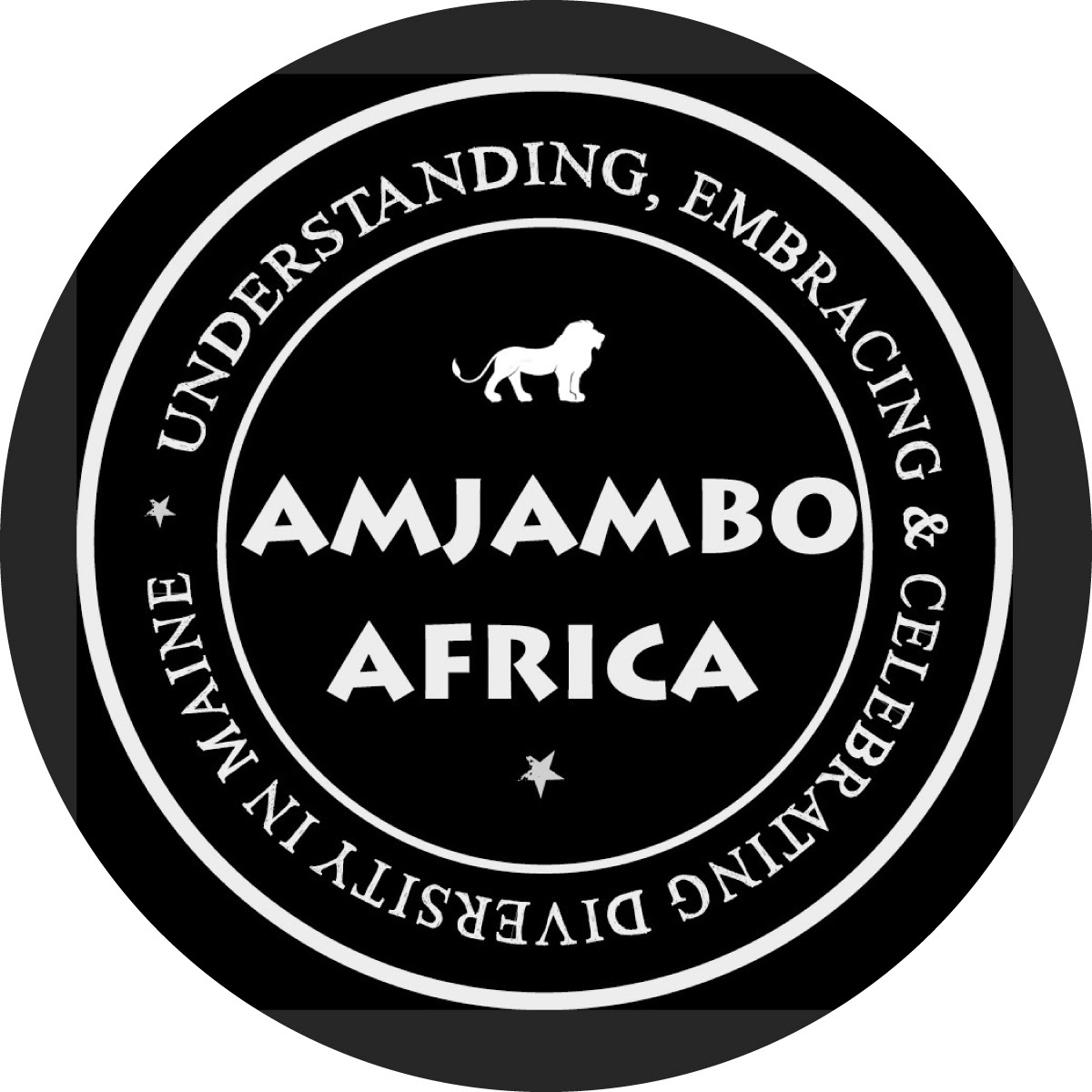COVID-19 Issue Spotlight: Immigrant Led Advocacy
SPOTLIGHT TAKEOVER: Amjambo Africa!
Maine Initiatives grantee, Ladder to the Moon Network, runs a free newspaper publication called Amjambo Africa, an incredible source of news, information, and community for New Mainers and the broader community alike. This week, we are turning over the COVID-19 Issue Spotlight to Amjambo Africa’s Editor-in-Chief, Kit Harrison, who brings to us a sample of their special coverage of the powerful immigrant-led organizing and advocacy work underway in response to the pandemic. Enjoy!
We are so excited to be taking over this week’s COVID-19 Issue Spotlight! Amjambo Africa has been hard at work documenting and communicating key messages about COVID-19 and the impacts it is having on our communities. For instance, in late April, when data confirming the disproportionate impact on Black and brown people in Maine began to be released by the Maine CDC, Amjambo Africa began regularly reporting that data, along with articles highlighting the barriers that have prevented many immigrants from accessing health care, quality education for their children, unemployment insurance, rental assistance, and other government benefits meant to help individuals and families weather the crisis.
In response to the increased need for information in this critical time, the publication has added four pages to its print edition, focused heavily on the news website and doubled the material it provides in Amjambo Africa’s five languages – French, Somali, Kinyarwanda, Portuguese, and Swahili. The publication’s monthly Community News feature shares updates from immigrant community association leaders on how their members are doing, and Amjambo Africa is piloting a new feature highlighting the work of other community organizations and the herculean efforts so many are making to address the needs of the underserved in Maine. In addition, Amjambo Africa added a COVID-19 button with multilingual educational videos and flyers to its website and shares this information regularly through social media sites.
Please read ahead to learn about the immigrant-led organizing and advocacy related to COVID-19 taking place across our state.
Thanks!
Kit Harrison, Editor-in-Chief, Amjambo Africa
Immigrant Led Advocacy
Maine Immigrants’ Rights Coalition (MIRC)
Maine Immigrants Rights Coalition has served a central advocacy role between immigrant communities statewide and the Mills Administration since the COVID-19 crisis first hit Maine. An ask that dates back to mid-March is to include seats at the Administration’s decision-making table for representatives from Maine’s immigrant communities in order to ensure that efforts aimed at preventing viral spread in those communities are culturally and linguistically appropriate, and are informed by members of the communities themselves. That ask has garnered attention from the Governor and state agencies, and they have begun collecting input from immigrant leaders in regards to their COVID-19 response efforts.
MIRC has played a lead role organizing the ethnic-based and grassroots organizations (the majority are members of MIRC) that are working with communities of color throughout the State, but in particular in Cumberland, Androscoggin, Washington, and York Counties.
MIRC has also spoken before the Maine Legislature’s Committee On Appropriations and Financial Affairs to request that communities of color be considered a priority when budgeting decisions are made for federal CARES Act spending. In addition, MIRC coordinated a press briefing that included members of tribal communities, Indigenous African American communities, and immigrant communities, and highlighted the need to address systemic racism in Maine, as well as disparities along racial and ethnic lines in relation to COVID-19.
A Coordinated Community Response
New Mainers Working Group
The New Mainers Working Group (NMWG) was formed by Mufalo Chitam, Executive Director of Maine Immigrants’ Rights Coalition, and Fatuma Hussein, Executive Director of Immigrant Resource Center of Maine, and convened via Zoom for the first time on March 10. Membership is drawn from immigrant-led service organizations and associations as well as allies from the non-profit and service sectors around the state. Initially, the group met bi-weekly and worked to remove barriers to accessing information about the disease. NMWG arranged for translation of preventative care fact sheets and videos into multiple languages and tapped social media and WhatsApp groups to reach as many members of vulnerable communities as possible. At the time, most information available in Maine was produced only in English.
From the beginning, Chitam, Hussein, and others spoke of the need to be included at decision-making tables at the state level so that the Administration’s outreach into immigrant communities would be culturally and linguistically appropriate. They asked for meetings with various departments in the government, such as the Maine Center for Disease Control, Department of Labor, and Department of Health and Human Services, and although those meetings took place, most recommendations of the NMWG have not yet been adopted. After the first month, the group formed subgroups, such as one focused on K-12 education.
New Mainers Education Working Group (NMEWG)
The New Mainers Education Working Group (NMEWG) formed in April as a subgroup of the NMWG when it became clear that schools were going to remain closed for a lengthy period. Educators, parents, and community leaders alike worried that virtual learning would lead to a widening of the opportunity gap, with immigrant children left further behind. Early concerns focused on barriers to accessing technology by children of immigrant parents. Reports rolled in of homes without internet access; children without laptops; parents who were digitally illiterate, or unable to read English; parents who were unable to help their children connect to their classrooms; children who had no contact at all with their schools.
The working group held focus sessions with parents to listen to their concerns, and drafted letters to different school systems around the state sharing what they had learned, and asking for solutions. Chief among the requests of school leadership is the building of partnerships and collaborations with ethnic community-based organizations to strengthen the response to Newcomer communities, including a New Mainer COVID-19 parent-school-community work group with members from the immigrant and refugee community.
Lewiston-Auburn New Mainers’ Emergency Response Task Force
Ethnic community-based organizations (ECBOs) in Lewiston/Auburn have worked tirelessly since the first days of the pandemic to bring different stakeholders together and develop a coordinated, culturally specific community response to the crisis through the Lewiston-Auburn New Mainers’ Emergency Response Task Force. City government, hospitals, food pantries, the police department, educators, and housing experts from both cities have been meeting weekly with ethnic community-based organizations through the Task Force for several months to develop culturally specific messaging, canvass neighborhoods, and educate community members about where to obtain testing, how to prevent spread, and how to safely quarantine. Together the same group has negotiated with the Mills Administration around service delivery.
PHOTO: Abdulkerim Said, Executive Director of New Mainer’s Public Health Initiative and Task Force Leader
What You Can Do


